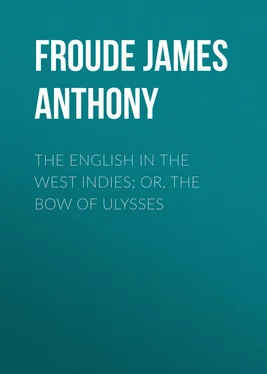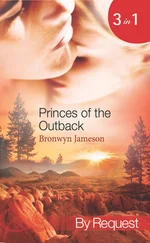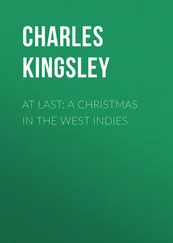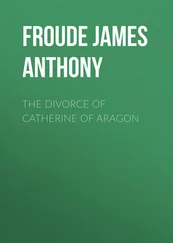James Froude - The English in the West Indies; Or, The Bow of Ulysses
Здесь есть возможность читать онлайн «James Froude - The English in the West Indies; Or, The Bow of Ulysses» — ознакомительный отрывок электронной книги совершенно бесплатно, а после прочтения отрывка купить полную версию. В некоторых случаях можно слушать аудио, скачать через торрент в формате fb2 и присутствует краткое содержание. Жанр: foreign_antique, foreign_prose, Путешествия и география, на английском языке. Описание произведения, (предисловие) а так же отзывы посетителей доступны на портале библиотеки ЛибКат.
- Название:The English in the West Indies; Or, The Bow of Ulysses
- Автор:
- Жанр:
- Год:неизвестен
- ISBN:нет данных
- Рейтинг книги:5 / 5. Голосов: 1
-
Избранное:Добавить в избранное
- Отзывы:
-
Ваша оценка:
- 100
- 1
- 2
- 3
- 4
- 5
The English in the West Indies; Or, The Bow of Ulysses: краткое содержание, описание и аннотация
Предлагаем к чтению аннотацию, описание, краткое содержание или предисловие (зависит от того, что написал сам автор книги «The English in the West Indies; Or, The Bow of Ulysses»). Если вы не нашли необходимую информацию о книге — напишите в комментариях, мы постараемся отыскать её.
The English in the West Indies; Or, The Bow of Ulysses — читать онлайн ознакомительный отрывок
Ниже представлен текст книги, разбитый по страницам. Система сохранения места последней прочитанной страницы, позволяет с удобством читать онлайн бесплатно книгу «The English in the West Indies; Or, The Bow of Ulysses», без необходимости каждый раз заново искать на чём Вы остановились. Поставьте закладку, и сможете в любой момент перейти на страницу, на которой закончили чтение.
Интервал:
Закладка:
Nature and the dark race had been simply allowed by us to resume possession of the island. Here, where the cannon had roared, and ships and armies had fought, and the enterprising English had entered into occupancy, under whom, as we are proud to fancy, the waste places of the earth grow green, and industry and civilisation follow as an inevitable fruit, all was now silence. And this was an English Crown colony, as rich in resources as any area of soil of equal size in the world. England had demanded and seized the responsibility of managing it – this was the result.
A gentleman who for some purpose was a passing resident in the island, had asked us to dine with him. His house was three or four miles inland. A good road remained as a legacy from other times, and a pair of horses and a phaeton carried us swiftly to his door. The town of St. George's had once been populous, and even now there seemed no want of people, if mere numbers sufficed. We passed for half a mile through a straggling street, where the houses were evidently occupied though unconscious for many a year of paint or repair. They were squalid and dilapidated, but the luxuriant bananas and orange trees in the gardens relieved the ugliness of their appearance. The road when we left the town was overshadowed with gigantic mangoes planted long ago, with almond trees and cedar trees, no relations of our almonds or our cedars, but the most splendid ornaments of the West Indian forest. The valley up which we drove was beautiful, and the house, when we reached it, showed taste and culture. Mr. – had rare trees, rare flowers, and was taking advantage of his temporary residence in the tropics to make experiments in horticulture. He had been brought there, I believe, by some necessities of business. He told us that Grenada was now the ideal country of modern social reformers. It had become an island of pure peasant proprietors. The settlers, who had once been a thriving and wealthy community, had almost melted away. Some thirty English estates remained which could still be cultivated, and were being cultivated with remarkable success. But the rest had sold their estates for anything which they could get. The free blacks had bought them, and about 8,000 negro families, say 40,000 black souls in all, now shared three-fourths of the soil between them. Each family lived independently, growing coffee and cocoa and oranges, and all were doing very well. The possession of property had brought a sense of its rights with it. They were as litigious as Irish peasants; everyone was at law with his neighbour, and the island was a gold mine to the Attorney-General; otherwise they were quiet harmless fellows, and if the politicians would only let them alone, they would be perfectly contented, and might eventually, if wisely managed, come to some good. To set up a constitution in such a place was a ridiculous mockery, and would only be another name for swindling and jobbery. Black the island was, and black it would remain. The conditions were never likely to arise which would bring back a European population; but a governor who was a sensible man, who would reside and use his natural influence, could manage it with perfect ease. The island belonged to England; we were responsible for what we made of it, and for the blacks' own sakes we ought not to try experiments upon them. They knew their own deficiencies and would infinitely prefer a wise English ruler to any constitution which could be offered them. If left entirely to themselves, they would in a generation or two relapse into savages; there were but two alternatives before not Grenada only, but all the English West Indies – either an English administration pure and simple, like the East Indian, or a falling eventually into a state like that of Hayti, where they eat the babies, and no white man can own a yard of land.
It was dark night when we drove back to the port. The houses along the road, which had looked so miserable on the outside, were now lighted with paraffin lamps. I could see into them, and was astonished to observe signs of comfort and even signs of taste – arm-chairs, sofas, sideboards with cut glass upon them, engravings and coloured prints upon the walls. The old state of things is gone, but a new state of things is rising which may have a worth of its own. The plant of civilisation as yet has taken but feeble root, and is only beginning to grow. It may thrive yet if those who have troubled all the earth will consent for another century to take their industry elsewhere.
The ship's galley was waiting at the wharf when we reached it. The captain also had been dining with a friend on shore, and we had to wait for him. The off-shore night breeze had not yet risen. The harbour was smooth as a looking glass, and the stars shone double in the sky and on the water. The silence was only broken by the whistle of the lizards or the cry of some far-off marsh frog. The air was warmer than we ever feel it in the depth of an English summer, yet pure and delicious and charged with the perfume of a thousand flowers. One felt it strange that with so beautiful a possession lying at our doors, we should have allowed it to slide out of our hands. I could say for myself, like Père Labat, the island was all that man could desire. 'En un mot, la vie y est délicieuse.'
The anchor was got up immediately that we were on board. In the morning we were to find ourselves at Port of Spain. Mr. S – , the Windward Island governor, who had joined us at St. Vincent, was, as I said, going to Tobago. De Foe took the human part of his Robinson Crusoe from the story of Juan Fernandez. The locality is supposed to have been Tobago, and Trinidad the island from which the cannibal savages came. We are continually shuffling the cards, in a hope that a better game may be played with them. Tobago is now-annexed to Trinidad. Last year it was a part of Mr. S – 's dominions which he periodically visited. I fell in with him again on his return, and he told us an incident which befell him there, illustrating the unexpected shapes in which the schoolmaster is appearing among the blacks. An intimation was brought to him on his arrival that, as the Athenian journeymen had played Pyramus and Thisbe at the nuptials of Theseus and Hippolyta, so a party of villagers from the interior of Tobago would like to act before his Excellency. Of course he consented. They came, and went through their performance. To Mr. S – 's, and probably to the reader's astonishment, the play which they had selected was the 'Merchant of Venice.' Of the rest of it he perhaps thought, like the queen of the Amazons, that it was 'sorry stuff;' but Shylock's representative, he said, showed real appreciation. With freedom and a peasant proprietary, the money lender is a necessary phenomenon, and the actor's imagination may have been assisted by personal recollections.
CHAPTER VI
Charles Kingsley at Trinidad – 'Lay of the Last Buccaneer' – A French forban – Adventure at Aves – Mass on board a pirate ship – Port of Spain – A house in the tropics – A political meeting – Government House – The Botanical Gardens' – Kingsley's rooms – Sugar estates and coolies.
I might spare myself a description of Trinidad, for the natural features of the place, its forests and gardens, its exquisite flora, the loveliness of its birds and insects, have been described already, with a grace of touch and a fullness of knowledge which I could not rival if I tried, by my dear friend Charles Kingsley. He was a naturalist by instinct, and the West Indies and all belonging to them had been the passion of his life. He had followed the logs and journals of the Elizabethan adventurers till he had made their genius part of himself. In Amyas Leigh, the hero of 'Westward Ho,' he produced a figure more completely representative of that extraordinary set of men than any other novelist, except Sir Walter, has ever done for an age remote from his own. He followed them down into their latest developments, and sang their swan song in his 'Lay of the Last Buccaneer.' So characteristic is this poem of the transformation of the West Indies of romance and adventure into the West Indies of sugar and legitimate trade, that I steal it to ornament my own prosaic pages.
Читать дальшеИнтервал:
Закладка:
Похожие книги на «The English in the West Indies; Or, The Bow of Ulysses»
Представляем Вашему вниманию похожие книги на «The English in the West Indies; Or, The Bow of Ulysses» списком для выбора. Мы отобрали схожую по названию и смыслу литературу в надежде предоставить читателям больше вариантов отыскать новые, интересные, ещё непрочитанные произведения.
Обсуждение, отзывы о книге «The English in the West Indies; Or, The Bow of Ulysses» и просто собственные мнения читателей. Оставьте ваши комментарии, напишите, что Вы думаете о произведении, его смысле или главных героях. Укажите что конкретно понравилось, а что нет, и почему Вы так считаете.












